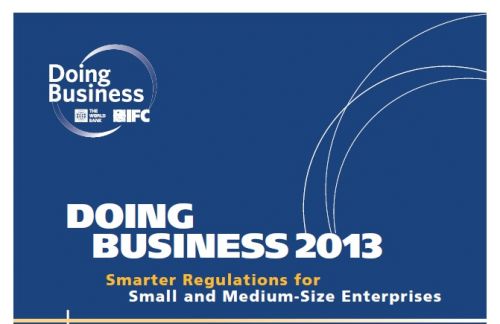On October 29, the World Bank published its annual “Doing Business” report. It measures the ease of doing business in 189 countries. Each country is ranked from 1 to 189. The lower the ranking is, the easier it is to start and operate a local firm (small to medium sized) in the country’s financial capital. The index calculates the average of a country’s percentile rankings in 10 areas:
- Starting a business
- Dealing with construction permits
- Paying taxes
- Getting electricity
- Registering property
- Getting credit
- Protecting investors
- Trading across borders
- Enforcing contracts and
- Resolving insolvency
Isaac Stone Fish published an article in the Foreign Policy online magazine, observing that the report on “Doing Business” does not incorporate measures for corruption. This is strange because topics such as, “registering property” or “paying taxes”, should factor in issues related to corruption, such as the need to pay off police and tax inspectors. The article raises two important points: there should be a direct relationship between the ease of doing business in a country and its level of corruption, and countries that noticeably improved in the ease of doing business should hypothetically have lower levels of corruption. The article used Russia as an example; it jumped 19 places from 111th to 92nd, though it is ranked 133 out of 176 on Transparency International’s latest Corruption Perception Index (CPI) survey.
[captionpix align=”left” theme=”elegant” width=”400″ imgsrc=”http://natoassociation.ca/wp-content/uploads/2013/11/Untitled.png” captiontext=””]
The table shows countries that experienced a relatively large positive change in their overall ranking of doing business, meaning it is easier to do business in those countries relative to last year’s report, and their CPI rank is fairly high. It is clear to see that Russia is not the only country that has a high level of corruption, yet managed somehow to increase its efficiency of doing business. The true price of doing business while including corruption would undeniably raise these county’s ranking, decreasing the noticeable change in this years’ report.




